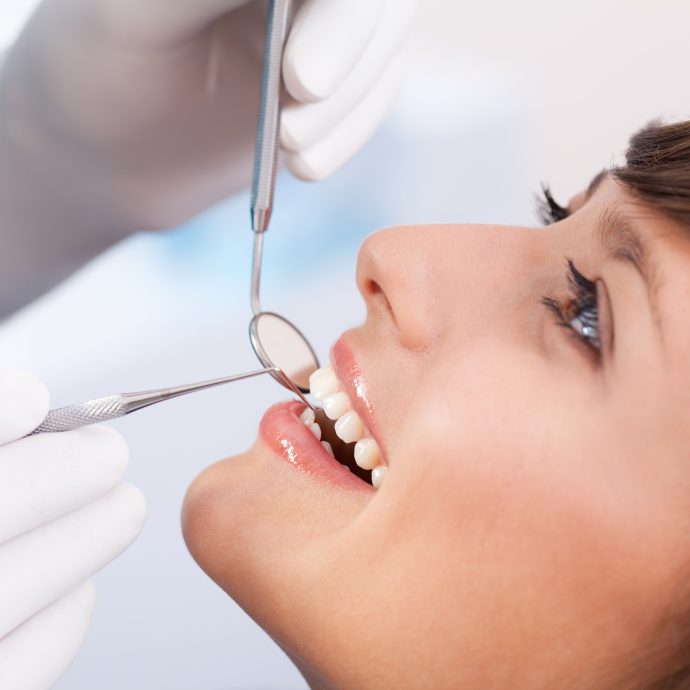
Implants
Losing teeth is never a pleasant experience whether it is due to gum disease, trauma or tooth decay. Traditional treatments for replacing teeth include removable dentures and fixed bridges but the more modern approach is to utilise dental implants.
For restorative, reconstructive or cosmetic needs, dental implants can give you teeth which look, feel and function like natural teeth. They allow you to regain the ability to eat, smile and speak with complete confidence and also improve your appearance of course.
Implants are very strong and long-lasting and compared to bridges there is no invasive adjustments of adjacent healthy teeth required.
Implants also help to preserve facial contours by stimulating bone growth and reducing bone loss which occurs when teeth are missing, preventing the “hollow” facial look. Full or partial denture wearers are particularly attracted to the restorative results which are possible as a denture can be kept very stable with implants as opposed to the use of denture adhesives. As the dentures are firmly connected to the implants the teeth are not able to move around anymore – ending periods of discomfort and embarrassment when unexpected movements catch the wearer unaware.
Multiple implants are used in cases when several or all teeth have been lost due to a variety of reasons. A single dental implant is used for a single missing tooth, but that doesn’t necessarily mean that every tooth will have a corresponding implant placed. For example – an entire jaw of missing teeth can be replaced with five or six implants, which will then be attached to a bridge or denture.
Assessing Patient Suitability
Each individual clinical situation has to be considered carefully when considering dental implants. Not all patients are suitable for dental implant treatment. An initial clinical examination of your gums, teeth, bite and jaw bones plus x-rays will be required to evaluate the suitability and the type of procedure necessary. Following that, a comprehensive quotation will be prepared for you.
If you are interested in how implants can improve your confidence and smile please call us on 0191 4997826 or book a complimentary consultation appointment with Andrew Dixon, our in house implantologist.

Dental Implants FAQ
What is a Dental Implant?
Dental implants are used to replace missing teeth by acting as a replacement root, they are small tissue compatible surgical grade titanium fixtures. They are inserted into the upper or lower jaw and crowns, bridges or dentures are attached to match the colour and contours of the existing teeth.
How does a dental implant work?
It is an accident of nature that titanium is not rejected by the body’s immune system. In fact the bone cells actively grow onto the implant surface and lock it into place, this period is known as integration. The integrated implant then becomes a secure new root upon which a crown, bridge or denture can be held in place. Implants can replace a single tooth or a whole mouthful of missing teeth.
Am i suitable for dental implant treatment?
A few medical conditions prevent the use of implants but these are rare. There is no age limit and elderly patients are often quite suitable. However, implants need enough good quality bone to lock into. Certain individuals may not have enough bone in the right place or the bone may be too fragile to support an implant. This can sometimes be overcome by bone grafting procedures.
Are implant safe and do they last a long time?
No treatment can be guaranteed to work but implants have a high success rate in the right cases. Complications are rare if the planning has been performed carefully. Implant treatment is now a well-established technique with a success rate of more than 95% over a fifteen year period. It is essential to care for implants properly once they are in your mouth or they may fail due to infection.
How long will the treatment take?
Generally this can take between six weeks to six months. Most cases take about 3-4 months. The time span for your treatment will depend on several factors such as the number of implants required, what type of implant treatment is planned and the quality of your bone.
How long will implant last?
Generally, well cared for implants in healthy mouths should last as long as your natural teeth. However, this depends on how you look after them and by following correct hygiene procedures. We always demonstrate this to you at the end of your treatment so that you look after your implants effectively.
Does smoking affect implant?
Smoking can inhibit proper healing of an implant. However, this does not prevent smokers from having implants successfully placed and restored. You should speak to your dentist for more specific information relating to your dental needs and the effects of smoking.
Does having implants hurt?
Not as much as you might expect! The implants are placed surgically but the procedure has to be done very gently. You should expect mild discomfort equivalent to having a tooth extracted. You may need a second much smaller procedure later to uncover the implant also. This rarely causes discomfort.